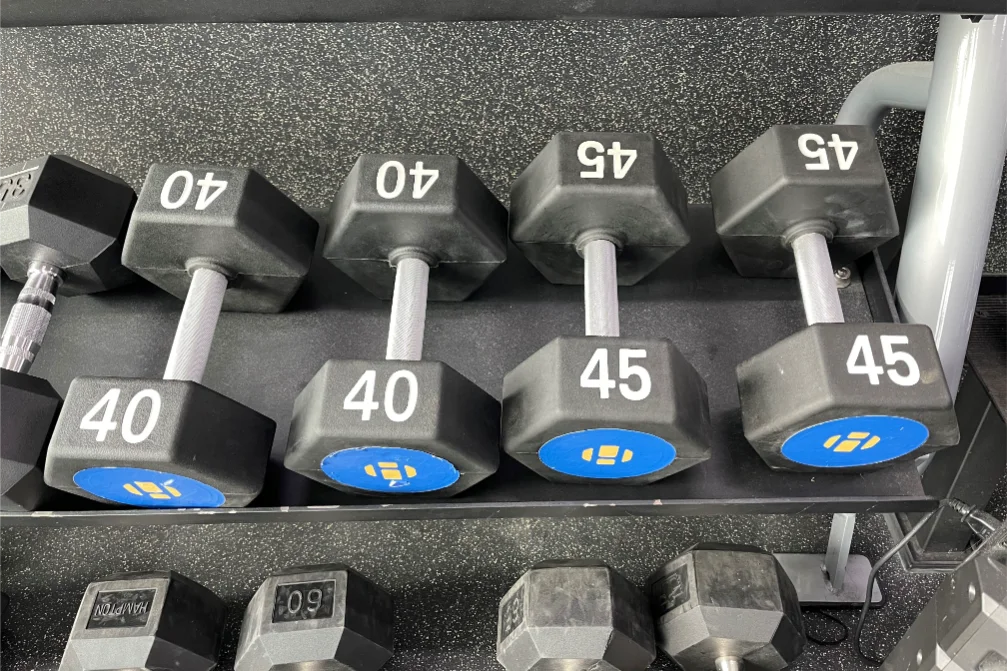Weight lifting on an empty stomach, often referred to as fasted weight training, is a topic of debate among fitness enthusiasts and experts. While some argue that it can enhance fat loss and improve performance, others caution against potential downsides. Let’s explore the pros and cons of this practice to help you make an informed decision about whether it’s right for you.
Pros of weight lifting on an empty stomach
Let’s start with benefits first:
Enhanced fat burning
- Increased fat oxidation: Exercising in a fasted state may shift the body’s energy source from glycogen to stored fat, potentially increasing fat loss.
- Boosted metabolism: Fasted exercise can enhance the metabolic rate, leading to greater calorie burn throughout the day.
But for a more tried and tested fat loss method, try HIIT calorie-burning exercises.
Improved insulin sensitivity
- Better glucose control: Fasted workouts can improve insulin sensitivity, which may help regulate blood sugar levels and reduce the risk of insulin resistance.
Convenience and comfort
- Simplicity: For some, exercising without the need to digest a pre-workout meal can feel more comfortable and convenient, especially for early-morning workouts.
Cons of weight lifting on an empty stomach
Now let’s see the potential downsides:
Reduced performance
- Decreased energy: Without readily available glycogen from food, you may experience lower energy levels, potentially impacting your strength and endurance during weight lifting.
- Increased fatigue: Fasted workouts might lead to a quicker onset of fatigue, reducing the overall effectiveness of your training session.
Muscle Loss Risk
- Catabolic state: Exercising on an empty stomach can increase the risk of muscle breakdown, as the body may turn to muscle protein for energy in the absence of glycogen.
Nutrient Deficiency
- Lack of nutrients: Skipping a pre-workout meal means missing out on essential nutrients that could support muscle recovery and growth.
What is the best pre-workout meal?
If you decide to eat before your workout, the best pre-workout meal is one that provides you with the right balance of nutrients to fuel your body, enhance performance, and support recovery. Ideally, it should contain a mix of carbohydrates, protein, and healthy fats. Here’s what to consider when planning your pre-workout meal:
- Simple carbs: For quick energy, opt for simple carbs like fruit or a small serving of sports drink 30 minutes before your workout.
- Complex carbs: For sustained energy, choose complex carbs like whole grains, oatmeal, or sweet potatoes 1-2 hours before your workout.
- Lean protein sources: Opt for lean protein sources like chicken breast, turkey, tofu, Greek yogurt, or a protein shake.
If you are located in Morganton and need assistance with your meal plans, visit HiTone Fitness. Our experienced nutritionists will develop the meal plan to help you achieve your goals without disturbing your lifestyle.
Final thoughts
The decision to weight lift on an empty stomach should be based on your individual goals, preferences, and how your body responds to fasted exercise.
If you’re considering fasted weight training, start with lighter sessions to gauge how you feel and adjust accordingly. It’s also important to stay hydrated and replenish your nutrients after the workout to support recovery.
FAQ
Answers to all the questions used data from the Exercise Training and Fasting: Current Insights study.
1. Does fasted weight training really burn more fat?
The Moro et al (2016) study with resistance-trained males provides direct evidence: Time Restricted Feeding (16-hour fasting, 8-hour eating window) resulted in a −16.4% reduction in fat mass compared to only −2.8% in the normal diet group (p=0.0448), with no change in fat-free mass. This is strong evidence that fasted training can enhance fat loss while preserving muscle.
2. Can you build muscle while lifting weights on an empty stomach?
Multiple studies show muscle preservation is possible. The Moro study showed “NC in Free fat mass” (no change in fat-free mass), and several alternate day fasting studies showed either no change or minimal loss in lean mass while achieving significant fat loss.
3. Should beginners lift weights on an empty stomach?
Endurance athletes should avoid high intensity training while fasting. While this specifically mentions endurance, it suggests caution for high-intensity training while fasted, which would apply to beginners who may not know their limits.
4. Is it safe to lift weights on an empty stomach?
Multiple studies across different populations (ages 18-65, various BMI ranges) showed no serious adverse effects, Studies ranged from 2 weeks to 1 year, suggesting safety for both short and long-term implementation. Please keep in mind that most studies were conducted on healthy individuals.





